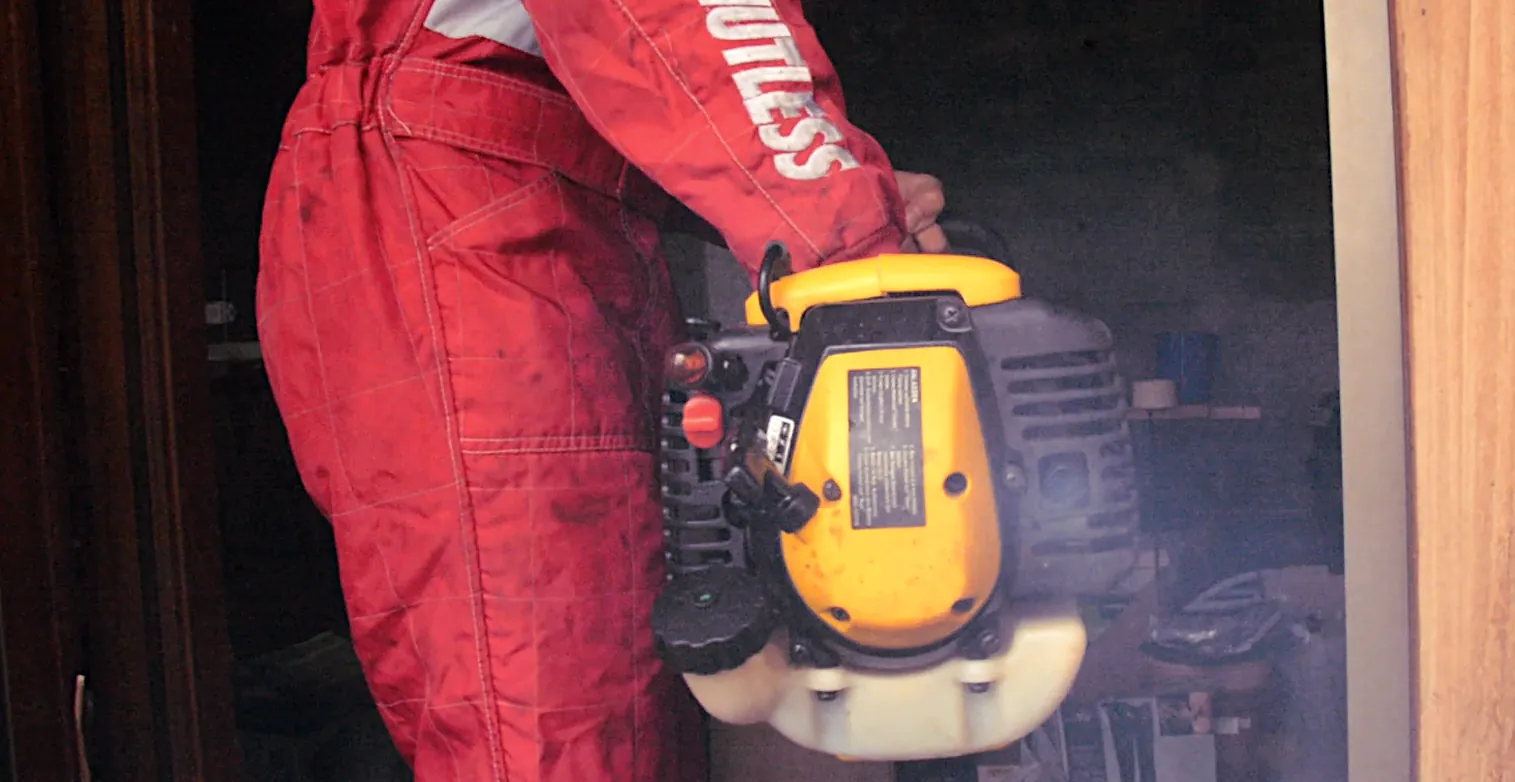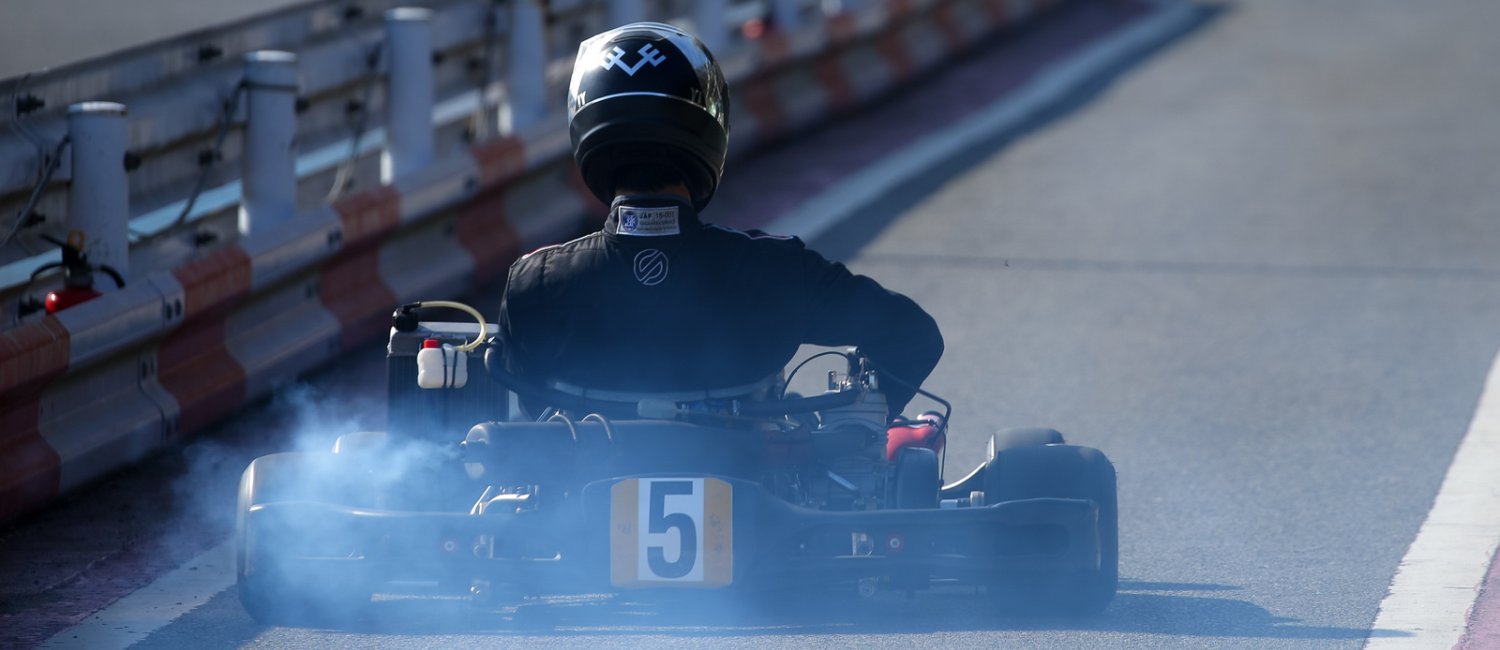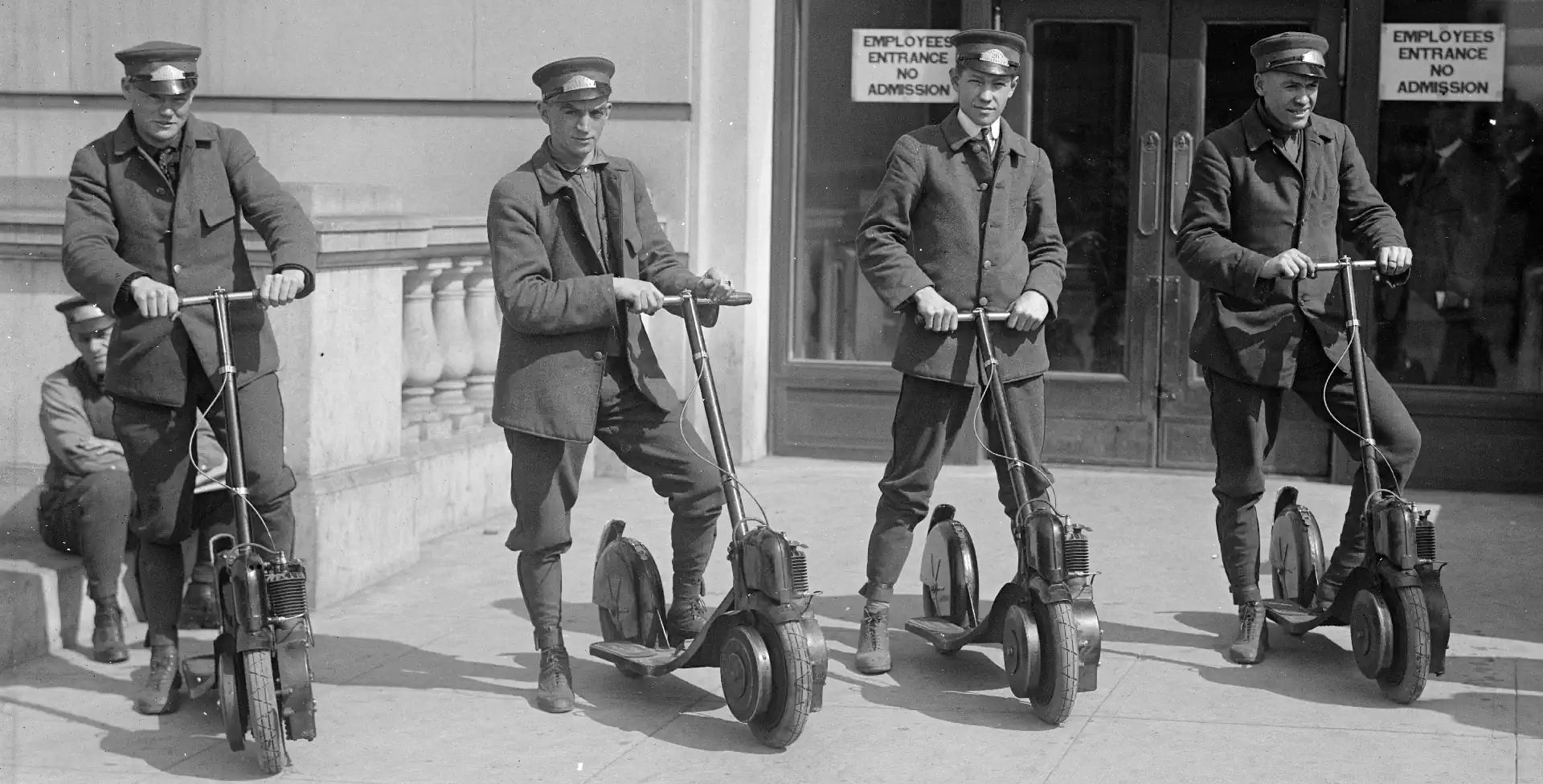This section is being reworked
In case you've been reading this far, first of all: thank you! I'm glad you're interested in the topic of this site. My name is Daniel, I'm Swiss, in my mid-30s, and the author of these pages. After reading the introduction in the previous sections, you probably assume that I'm a staunch environmentalist, a real tree hugger and eco-warrior, deeply upset and outraged at how humans treat the environment. In some ways, your assumption would be right. But it's only half of the story.
It's true that as a boy, I grew up with a pronounced and deep-seated environmental consciousness, although I'm not sure why. The environment wasn't a major topic at home. Although my parents were no environmentalists, they usually tried to do the right thing. I assume that a much bigger influence was the fact that the topic was ever-present in the media of the late 80s and early 90s. Especially acid rain and dying forest syndrome were discussed a lot. I'm pretty sure it's what got me to develop an interest in environmental protection.
Childrens' magazines and television shows were also regularly running environmental topics, showing pictures of severe environmental damage and explaining what caused it. I remember magazine articles showing photos of clear-cut rainforest, animals who had lost their homes, but also the loggers, cutting into tree trunks with their chainsaws. The authors tried to illustrate how much of the rainforest is being chopped down every day, but the dimensions went beyond what my young mind was able to grasp—even today, I don't think I can really comprehend it. In the ever-popular scale of reference, it was apparently around 50,000 football fields per day in the 1990s.
On TV, I saw pictures of dying forests, closer to home. They explained that the trees were dying because cars were blowing exhaust fumes into the air, which then fell back and seeped into the ground as acid rain. These reports tried to make sure we'd grow up to be environmentally conscious adults, and do a better job at protecting nature than the generation of our parents.
The effort was very effective in my case, the images moved me deeply. Every time I saw such pictures of environmental destruction, I had a lump in my throat. It was an overwhelming roller-coaster of emotions. I was unfathomably sad to see how this beautiful nature was polluted and destroyed. I was furious at the humans who were doing this to nature without showing any remorse. At the same time, I didn't understand how grown-ups were capable of causing this devastation—after all, they must've known just as well as I that we can't survive without a healthy environment. But I also felt an excruciating sense of hopelessness, because I knew how quickly the devastation was progressing and that much of it would, once destroyed, be irrecoverably lost.
I soon fulfilled the stereotype of a tree hugger as much as was possible for a boy of maybe 6 or 7 years of age. I took a vow to myself to never use a gasoline motor for as long as I lived. My persuasive power was strong enough that I was able to convice a few neighbourhood kids to take the same vow (all of them have broken it since). But I was frustrated that there wasn't anything more I could do. A small boy couldn't do anything about the many, grown-up polluters in the world. So I started looking for things that could at least make me feel like I was making a difference.
 One rather clear memory from those early years is of my "exhaust gas notes". The exhaust pipes of cars and motorcycles were, apart from the occasional tree being cut down, the only kind of pollution I was directly confronted with in my small suburbian childhood life. I started paying close attention to cars driving by, checking to see if visible smoke was coming out of their tailpipes. I saw this as a clear sign that a car was causing more pollution than the others. On little slips of paper, I took notes of which cars puffed out little, a lot, or especially much exhaust gas. I don't remember what I thought that would achieve, or what I planned on doing with the information. But I guess it made me feel like I was collecting evidence against polluters.
One rather clear memory from those early years is of my "exhaust gas notes". The exhaust pipes of cars and motorcycles were, apart from the occasional tree being cut down, the only kind of pollution I was directly confronted with in my small suburbian childhood life. I started paying close attention to cars driving by, checking to see if visible smoke was coming out of their tailpipes. I saw this as a clear sign that a car was causing more pollution than the others. On little slips of paper, I took notes of which cars puffed out little, a lot, or especially much exhaust gas. I don't remember what I thought that would achieve, or what I planned on doing with the information. But I guess it made me feel like I was collecting evidence against polluters.
Unfortunately, nobody else seemed to share my grave concern for the environment. Everybody was driving cars, and nobody seemed to pay any attention to the exhaust fumes. That made me feel even more helpless. The topic was a very emotional one to me, and it occupied my mind pretty much every day. Whenever I saw exhaust fumes somewhere, I just couldn't look away. I had to watch intently, so that at least one person could attest to what had happened. When I heard the engine of a moped, I'd try to find it so I could maybe get a glimpse of the exhaust fumes and condemn the rider in my mind. If I heard the sound of chainsaws in the distance, I'd scan the treetops in the village and the forests on the horizon, trying to see if somewhere, a tree would topple over and fall.
It was like collecting evidence again, but it also felt somewhat comforting. Although I couldn't prevent a patch of air from being contaminated, or a tree from being felled and lost forever, at least I was present in that moment. I had witnessed it and felt the sadness, the anger, and frustration. That made the destruction feel a tiny bit less senseless. I would remember and be able to tell others about it. Car drivers couldn't pollute the air unchecked, because somebody caught them doing it. The tree wasn't just crashing down without anybody caring. I gave it back some dignity by sharing the pain during its last moments, and aching for it after it was gone.
But at this time, I also started uncovering the other side of my complex relationship with pollution. Back then, I discovered some new bodily sensations and started exploring them. My mind almost immediately associated this with my obsession for exhaust gas and tree fellings. For many years, I puzzled over the question of how this connection came about. But it might be very simple: exhaust fumes were on my mind almost constantly, so I was probably also thinking about them while experiencing those new sensations. Conditioning took care of the rest. I thought that those nice feelings had something to do with my thoughts about pollution, and because it felt so nice, I naturally started to think about pollution again the next time.
These new feelings didn't change anything about my environmentally conscious attitude, but they chipped away at my self-image. How could it be that something so reprehensible, something I was disgusted by and hated with a passion, enabled such wonderful sensations at the same time? Of course, I still couldn't understand what those feelings were in the first place. But I noticed that because of them, I started to feel new emotions when watching the environment being polluted. In addition to my usual sadness, indignation, and helplessness, I now also felt temptation, craving, and excitement. It was incredibly confusing to have such contradictory feelings about the same thing.
This inner conflict also led to the theory that my reaction might have been a psychological coping mechanism. Humanity's reckless behaviour made me incredibly sad, but I couldn't do anything to stop it. Maybe my paradoxical response was a way for me to regain a feeling of control. I was frustrated that I was so helpless against man-made pollution, but as long as I also found desire and pleasure in it, things were still somewhat going my way. I wasn't just at the mercy of having to watch the desecration of the environment – part of me actually wanted to see it happen.
The things I saw happen still hurt me deeply. I still wished that I could protect the environment. But I had also started to like the thrill I now felt whenever I saw such heartbreaking incidents. I was eager to see the most devastating scenes of pollution to get my "kick". Soon, I was almost only interested in the pitch-black, sooty exhaust fumes of diesel engines and, above all others, the oily fumes of two-stroke engines, such as those in scooters and enduro dirtbikes. I had learned that for once, looks weren't deceiving: the pungent, sickly-blue, thick exhaust fumes of a single two-stroke were indeed more polluting and poisonous than those of hundreds of cars! That thought excited me. Because the allure was bigger the worse the pollution was, I started looking for two-strokes above all others.
When I was scanning the treetops again, looking for where the noise of chainsaws was coming from, I caught myself almost hoping to see a tree fall. Of course I had always hoped that, in case a tree was truly being felled, I wouldn't miss seeing the moment it happened. But now, I caught myself being downright disappointed if it turned out that none were being cut down at all. When I saw a scooter at the intersection and fixed my eyes on the little exhaust pipe, I genuinely hoped for it to blow out a thick, blue plume. I even hoped that the rider would unnecessarily rev their engine while waiting for the green light, so that I could watch and get upset about even more exhaust fumes, while berating the rider in my mind. I wanted to see the most appalling pollution possible so that I could commit it to memory and, later at home, enjoy myself while recalling it.
 Moments like the pointless revving at a red light also made me discover that an incident was more thrilling to me the more senseless I thought the pollution was. My excitement came directly from my outrage, and it was easier to be appalled by someone if they were polluting unnecessarily. A smoking exhaust pipe is less outrageous, and therefore also less titillating, if it belong to a bus that is simply taking passengers from A to B. It affected me much more deeply if I observed two teenagers sitting on mopeds, endlessly gossiping in front of school, while just leaving their engines running all the time. In the same way, it wasn't as stirring to see workers cut down an old, visibly sick tree, as it was to see them fell one that looked healthy and majestic. Even better if the tree wasn't being cut down for a new building, but apparently because some neighbour wanted a better view from their window.
Moments like the pointless revving at a red light also made me discover that an incident was more thrilling to me the more senseless I thought the pollution was. My excitement came directly from my outrage, and it was easier to be appalled by someone if they were polluting unnecessarily. A smoking exhaust pipe is less outrageous, and therefore also less titillating, if it belong to a bus that is simply taking passengers from A to B. It affected me much more deeply if I observed two teenagers sitting on mopeds, endlessly gossiping in front of school, while just leaving their engines running all the time. In the same way, it wasn't as stirring to see workers cut down an old, visibly sick tree, as it was to see them fell one that looked healthy and majestic. Even better if the tree wasn't being cut down for a new building, but apparently because some neighbour wanted a better view from their window.
The very things that made my inner tree hugger especially sad and angry, made these other feelings all the more intense and exciting. That's why I kept looking for more shocking incidents of pollution all the time, with even more severe consequences, and even more reckless polluters. This dynamic explains my ambivalent relation with pollution and environmental protection to this day.
It also explains my specific obsession with motorsports such as motocross and karting. Nowhere else are there dirtier engines being used more pointlessly. With their two-stroke engines, every single athlete is causing as much pollution as a thousand gas-powered cars, the pollution is being caused for absolutely no useful purpose, oftentimes in the middle of nature, nobody wastes a single thought on the environment, and nobody is ashamed of their wastefulness—in fact, they're proudly putting it on display with their racing gear. It's the ultimate nightmare of every environmentalist, like my one side, and therefore the greatest thrill for my other, "darker" side.
As a teenager, I was incredibly anxious that someone could find out about my weird thoughts and feeling about exhaust fumes. To prevent that, I pretended for a long time to be utterly disinterested in anything even remotely related to motors or environmental protection. My disinterest was so exaggerated that, in hindsight, it might have made me all the more suspicious!
Ironically, that's why I was also one of the few students who never owned a moped or scooter. I can't imagine the mind-blowing rush it would've been, had I owned and been able to use a two-stroke of my own as a teenager. My strong environmental qualms against running the engine even for a second would've clashed against an overwhelming temptation. Despite my conscience, I was always curious how it felt to actually run an engine, curious if it would help me understand how people, some of them my friends, were able to do such an unforgivable thing and simply not care about the resulting pollution.
However, I didn't stay entirely passive towards my secret obsession. I spent more time with classmates who had their own scooter, so that every now and then, I'd get to smell the exhaust fumes when they were driving off. I often took a detour, walking behind the building of a local indoor karting track, where a large air vent was blowing out the air from inside, thick with the smell of exhaust fumes, and releasing it into the surroundings. Still, I wasn't able to actually visit the track myself due to my fear that someone could discover the nature of my excitement about it. At around 12 years old, I bought a used kart racing suit and almost couldn't process the sight of myself wearing it, looking just like one of those evil polluters.
Roughly around that time, I caved in to the final temptation and tried to start a gasoline engine myself for the first time. Alone at home on a weekend, I grabbed my dad's two-stroke string trimmer and decided to try it out. The trimmer had always been in the house, and as a young boy I hated it for the monstrous fumes it was producing. Still, it took many years until I got to the point of wanting to start it up myself. My qualms of conscience had always been much stronger than my curiosity, and there was the vow I had made to myself. Even if I had done it just to see how it felt, and in an effort to better understand polluters, the fumes it would produce would be real and just as devastating, so it was out of the question. I don't think I ever even considered it before I started approaching my teenage years and the urge finally became too strong.
That day, nervous to the point that I was shaking all over, I managed, after many attempts, to properly pull the cord and start the engine. I remember how shocked I was at the sudden noise, but also at the thought that I had finally broken my childhood promise. I watched how little blue clouds were streaming out of the tiny exhaust outlet, and made myself realise that this was it: I was actually polluting the environment, out of my own free will, with real, noxious, entirely pointless exhaust fumes, and I was fully responsible for it. I let the trimmer putter on for about a minute, titillated by the thought that I could stop the pollution at any moment, but decided to let it go on. Then I flipped the kill switch and felt my heart beat in my throat. I had crossed the last boundary.
Throughout all of my childhood and half of my teenage years, I was sure that I must be the only person in the world with these bizarre thoughts, fondnesses, and urges. Over the years, I've been glad to find out that this was far from the truth. While looking for pictures of exhaust gas on the World Wide Web, I soon found like-minded people online. Since then, I've had personal conversations and interesting discussions with many of them, from around the world. Although even among us, nobody can really explain these penchants, it's fascinating to speculate, discuss theories, and swap experiences. This website is another way for me to continue some of those thoughts and discussions. Maybe this text even resolved a bit of the mystery for uninitiated visitors—to the extent that someone not sharing these tendencies could ever hope to relate, at least. I tried my best!
Above all, however, I hope that I will continue to get e-mails from "newbies". Ever since I started my first website on the topic, I've been regularly contacted by people who were in the same situation as younger me, confused and maybe embarrassed about their feelings, and sure that nobody else would understand. One of my main goals in running this site is to let those people know that they're far from alone in this, that there are many like-minded individuals out there who share and understand these strange feelings, and that they can meet and talk to them if they want to. If you're one of them: I'd love to hear your story!













































 One rather clear memory from those early years is of my "exhaust gas notes". The exhaust pipes of cars and motorcycles were, apart from the occasional tree being cut down, the only kind of pollution I was directly confronted with in my small suburbian childhood life. I started paying close attention to cars driving by, checking to see if visible smoke was coming out of their tailpipes. I saw this as a clear sign that a car was causing more pollution than the others. On little slips of paper, I took notes of which cars puffed out little, a lot, or especially much exhaust gas. I don't remember what I thought that would achieve, or what I planned on doing with the information. But I guess it made me feel like I was collecting evidence against polluters.
One rather clear memory from those early years is of my "exhaust gas notes". The exhaust pipes of cars and motorcycles were, apart from the occasional tree being cut down, the only kind of pollution I was directly confronted with in my small suburbian childhood life. I started paying close attention to cars driving by, checking to see if visible smoke was coming out of their tailpipes. I saw this as a clear sign that a car was causing more pollution than the others. On little slips of paper, I took notes of which cars puffed out little, a lot, or especially much exhaust gas. I don't remember what I thought that would achieve, or what I planned on doing with the information. But I guess it made me feel like I was collecting evidence against polluters. Moments like the pointless revving at a red light also made me discover that an incident was more thrilling to me the more senseless I thought the pollution was. My excitement came directly from my outrage, and it was easier to be appalled by someone if they were polluting unnecessarily. A smoking exhaust pipe is less outrageous, and therefore also less titillating, if it belong to a bus that is simply taking passengers from A to B. It affected me much more deeply if I observed two teenagers sitting on mopeds, endlessly gossiping in front of school, while just leaving their engines running all the time. In the same way, it wasn't as stirring to see workers cut down an old, visibly sick tree, as it was to see them fell one that looked healthy and majestic. Even better if the tree wasn't being cut down for a new building, but apparently because some neighbour wanted a better view from their window.
Moments like the pointless revving at a red light also made me discover that an incident was more thrilling to me the more senseless I thought the pollution was. My excitement came directly from my outrage, and it was easier to be appalled by someone if they were polluting unnecessarily. A smoking exhaust pipe is less outrageous, and therefore also less titillating, if it belong to a bus that is simply taking passengers from A to B. It affected me much more deeply if I observed two teenagers sitting on mopeds, endlessly gossiping in front of school, while just leaving their engines running all the time. In the same way, it wasn't as stirring to see workers cut down an old, visibly sick tree, as it was to see them fell one that looked healthy and majestic. Even better if the tree wasn't being cut down for a new building, but apparently because some neighbour wanted a better view from their window.
